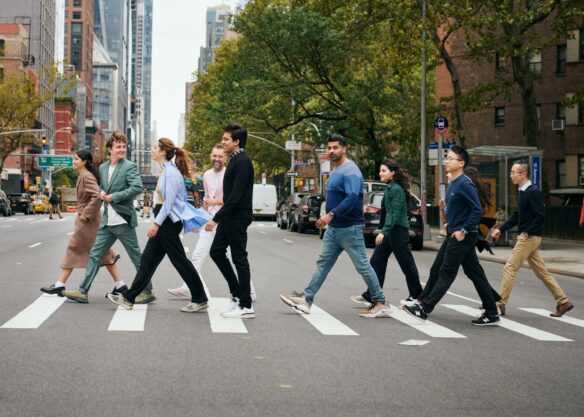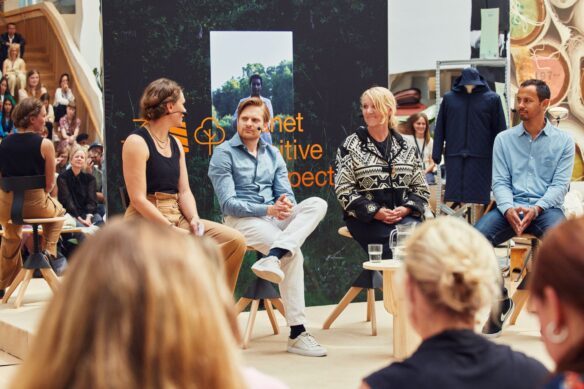A turning point in fashion history came in 1764, when the multi-spindle spinning frame, popularly known as The Spinning Jenny, was invented. It launched the industrial revolution in textile development and made quality clothing available to more people at a lower cost.
Now, almost 260 years later, we’re at another turning point.
This time, it’s about shifting the textile industry’s planetary impacts and making fashion benefit the planet’s ecosystems. It’s about making the industry’s complex, fragmented and global supply chains fully traceable. And to purify industrial wastewater in a single step. And to end textile waste by enabling manufacturers and recycling facilities to map, trace and trade the leftovers. It’s about driving change across the entire industry.
H&M Foundation initiated the Global Change Award in 2015 to accelerate this shift. And we have a network of over 30 innovations to prove that real change is possible — and taking place right now.
Ahead of the 2023 iteration, we caught up with winners from 2016 and 2020 to deep dive into their scaling journeys.
The GCA supercharged TextileGenesis growth
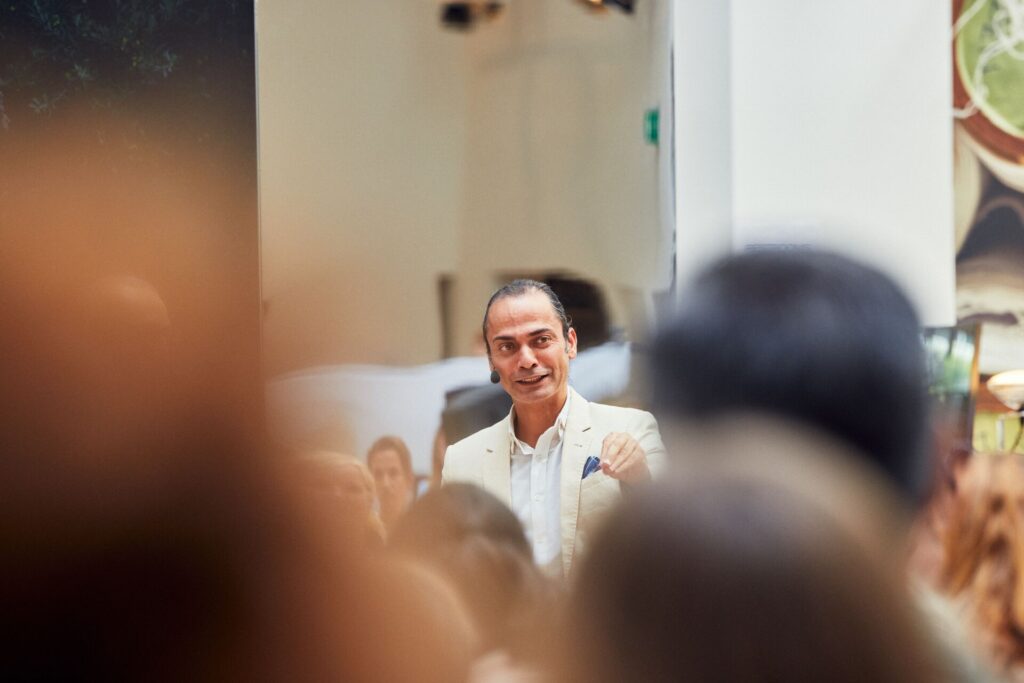
TextileGenesis won the award in 2020 with a traceability platform that uses reliable blockchain technology to trace sustainable fibres from farm to factory, to retailer to consumer.
“The year we won, we were tracking close to 100,000 products. Now, we’re tracking close to 500 million. During the last two years, while working closely with the GCA, we’ve supercharged our growth.”
Amit Gautam, founder TextileGenesis
His team currently works with over 30 brands— including Kering, H&M Group, Bestseller and Lenzing — across 20 countries. Amit Gautam considers brands’ commitment to sustainability as one of TextileGenesis’ success factors.
“Sustainability and traceability are two sides of the same coin. If you’re investing in sustainability, you have to invest in traceability too,” he says and continues:
“If you look back five to ten years, hardly any brands or retailers had traceability as a function. Now, so many have appointed vice presidents or directors of traceability. This is a function that is being set up.”
From garage prototype to commercial pilot
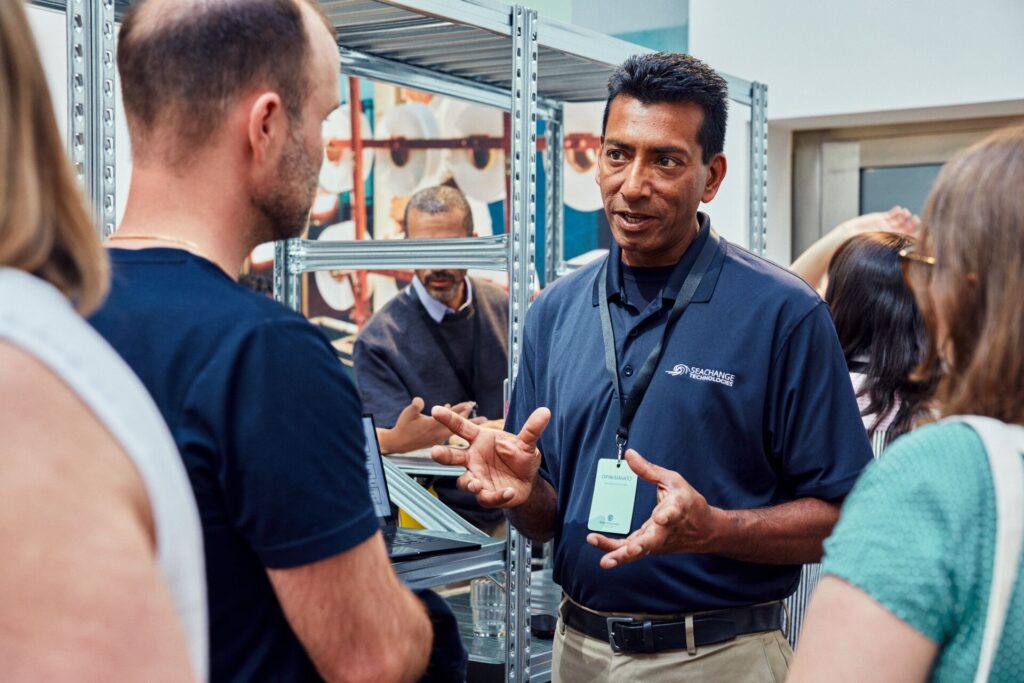
While TextileGenesis is fuelling fashion with traceability, SeaChange Technologies is on a scaling journey that will transform how the industry manages wastewater.
Their breakthrough water treatment technology makes it possible to purify the most challenging industrial wastes, eliminating sludge, chemical discharge and GHG emissions in a single step.
“The Global Change Award has been amazing for SeaChange Technologies. It gave us the support to go from our garage-built prototype to a device ready for a commercial pilot trial to change how people manufacture and handle their wastewater. There’s no way we could have done that without the H&M Foundation’s support,” says founder Dipak Mahato.
Mapping, tracing and trading to end textile waste
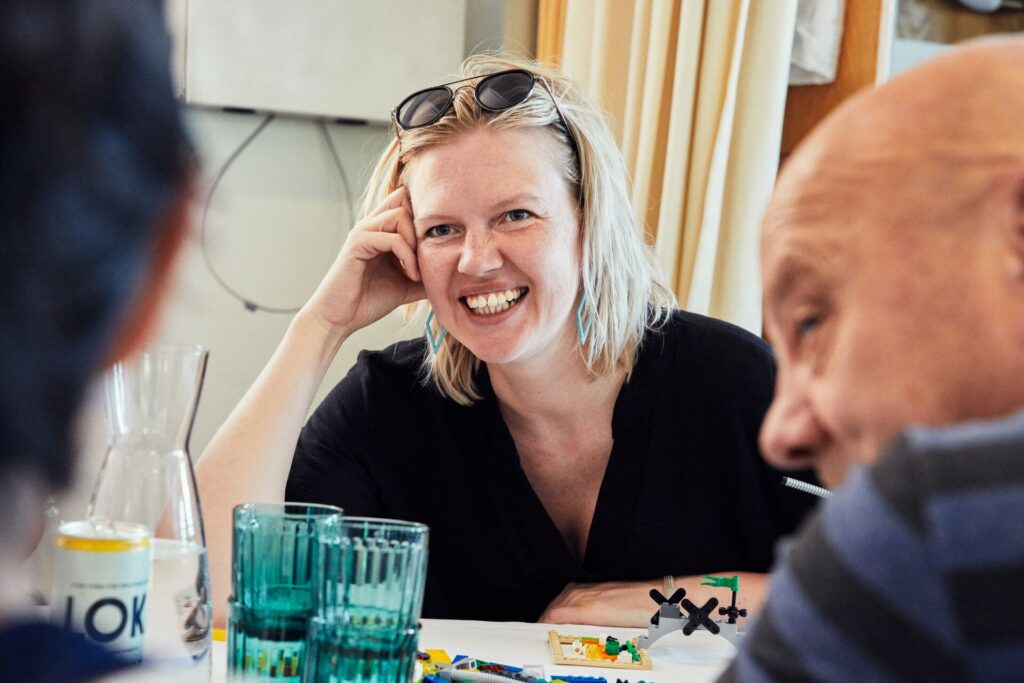
Currently, the textile industry produces 150 billion garments each year.
By manufacturing these enormous quantities of clothing, a massive amount of waste is inevitable. Reverse Resources’ mission is to end textile waste. And they do it through an online SaaS platform that helps fashion brands and their textile-to-textile recycling partners to map and source high quality waste transparently, from garment factories and post-consumer collectors, while building a global overview of circular textile flows for the industry in real time.
“We are tracing roughly 1,000 tons of production waste per month from factories in countries like Bangladesh, India and Turkey to recycling across Asia and Europe, which is just a start of the journey with most of our partners,” says co-founder Ann Runnel.
Reverse Resources is one of the inaugural GCA winners, yet, the team behind it hasn’t opted out of the network of experts, stakeholders and entrepreneurs that the challenge and its ensuing programmes provide.
“The GCA Impact Accelerator wasn’t just for one year. It has been going on for us for six years already, and we keep getting support, which is so helpful on this journey,” says Ann Runnel.
Discover all Global Change Award winners from 2016 to 2022 here.
